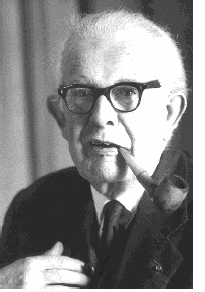Piaget argues that stages of development are fundamentally similar, across different cultures. This is how Jean Piaget accounts for the sources of a child’s cognitive capacity.

A Second group of factors should also be introduced … According to individuals and the family, scholastic, and social milieus in general, we find in children of the same city often considerable progress or retardation which is not inconsistent with the order of succession, which remains constant, but which reveals that other factors are added to the epigenetic mechanisms …
Whether we study children in Geneva, Paris, New York, or Moscow, in the Iranian mountains or in the heart of Africa or on a Pacific island, everywhere we observe certain social conduct of exchange among children or among children and adults … As it is evident everywhere that the child benefits from the youngest age from social contacts, this would show that there exist certain common processes of socialization.
Piaget, Jean. 1971. Psychology and Epistemology: Towards a Theory of Knowledge. Harmondsworth UK: Penguin. || Amazon || WorldCat
